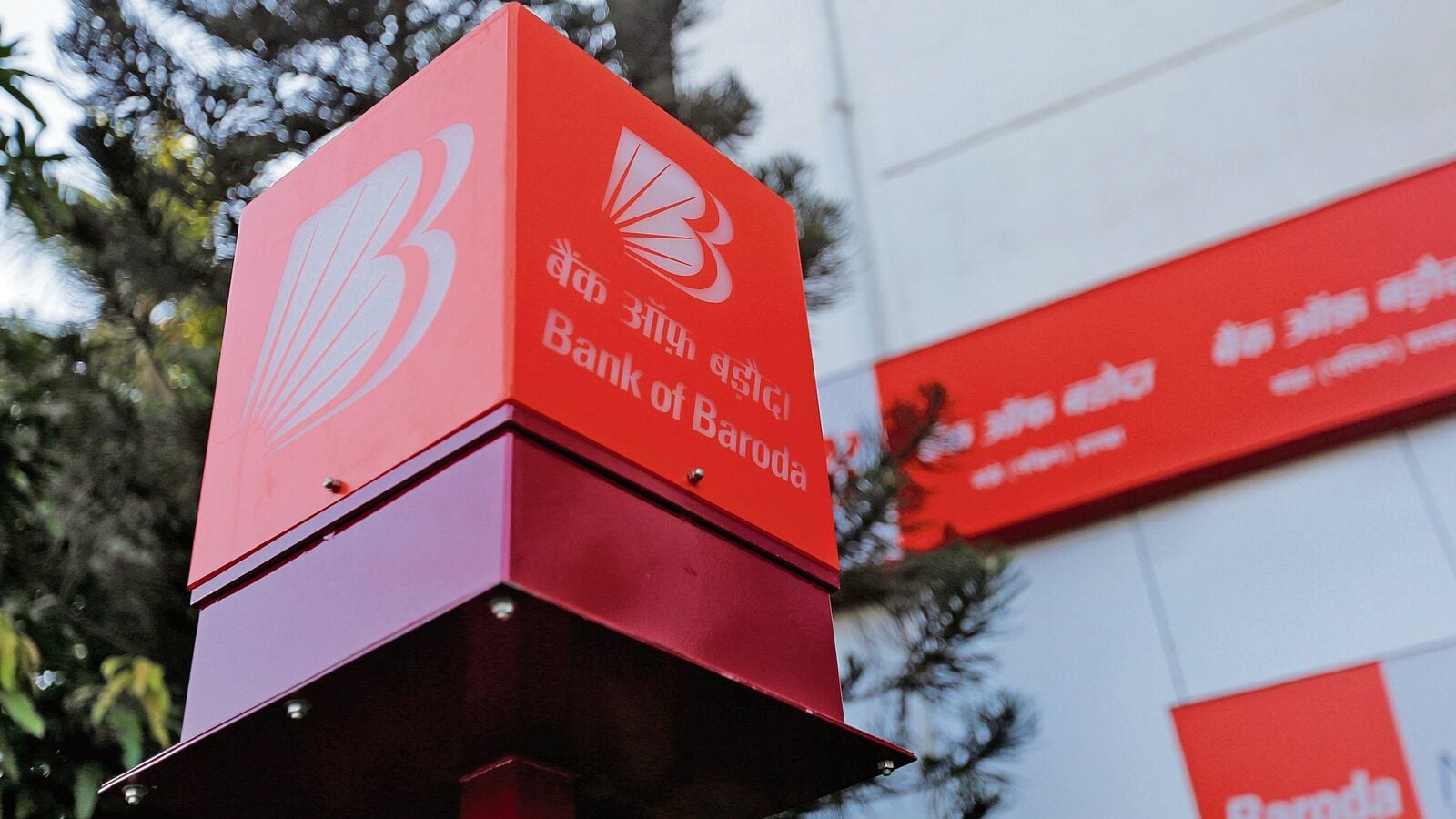The Reserve Bank of India (RBI) has temporarily barred four non-bank lenders—Sachin Bansal’s Navi Finserv, DMI Finance, Asirvad Micro Finance Ltd (backed by Manappuram Finance), and Arohan Financial Services Ltd—from sanctioning and disbursing new loans from the close of business on 21 October, citing material supervisory concerns related to loan pricing practices.
“This action is based on material supervisory concerns observed in the pricing policy of these companies in terms of their weighted average lending rate (WALR) and the interest spread charged over their cost of funds, which are found to be excessive and not in adherence with the regulations,” the RBI said in a statement on Thursday.
The central bank also noted that the breaches were not limited to pricing.
The lenders failed to follow the Fair Practices Code, violated rules around income assessments, and disregarded loan repayment capacity norms for microfinance borrowers. Inspections also uncovered concerns related to evergreening of loans, asset classification, gold loan portfolio practices, and non-compliance with disclosure mandates. Additionally, some had outsourced core financial services, compounding regulatory risks.
The ban hits these lenders at a critical juncture.
Asirvad Micro Finance is gearing up for a ₹1,500 crore initial public offering (IPO), and Arohan Financial Services’ managing director, Manoj Nambiar, was appointed chairperson of the Microfinance Industry Network (MFIN) just a few months ago. The crackdown is also a blow to Navi, which is still reeling from the RBI’s rejection of its application for a universal banking licence two years ago.
Meanwhile, DMI Finance had secured a significant boost in August when Japan’s MUFG Bank doubled down with an additional investment of ₹2,798 crore, bringing its total stake to ₹4,712 crore. Navi, DMI, and the others must now navigate this regulatory turbulence to maintain investor confidence and operational continuity.
In response, Navi Finserv Ltd said it was committed to conducting its business operations with the highest standards of compliance, customer service, and transparency. “The company is reviewing the directions received from the Hon’ble Reserve Bank of India and will work with them, and address all the concerns raised with promptness and completeness.”
“Over the last few months, the RBI has been sensitising its regulated entities through various channels on the need to use their regulatory freedom responsibly and ensure fair, reasonable and transparent pricing, especially for small value loans,” it added.
The RBI clarified that the restrictions only apply to new lending; the affected non-banking finance companies (NBFCs) can continue servicing their existing customers and proceed with collections under regulatory guidelines.
“These business restrictions will be reviewed upon receipt of confirmation from the companies regarding suitable remedial action having been taken to adhere to the regulatory guidelines at all times, more particularly their pricing policy, risk management processes, customer service and grievance redressal aspects,” the RBI added.
The central bank’s crackdown follows months of heightened scrutiny. In recent speeches and policy updates, RBI governor Shaktikanta Das issued repeated warnings to non-bank financiers and micro-lenders about usurious interest rates.
Last November, Das had urged microfinance firms to be judicious in setting interest rates, highlighting that some lenders were enjoying unusually high net interest margins.
The October monetary policy reinforced these concerns, with the RBI warning NBFCs against chasing “growth at any cost,” cautioning that such practices could jeopardize financial stability.
More here | Tough times ahead for NBFCs: Piramal’s Sridharan
The current situation also reflects a shift in the RBI’s approach to pricing regulation. In March 2022, the central bank removed explicit pricing caps on microfinance loans, instead asking lenders to develop internal pricing policies approved by their boards. These policies were expected to include ceilings on interest rates and associated fees, though the RBI no longer dictated those limits.
=========================================
The Reserve Bank of India has barred four non-bank lenders – Sachin Bansal’s Navi Finserv, DMI Finance, Manappuram Finance-backed Asirvad Micro Finance and Arohan Financial Services – from sanctioning and disbursing loans with effect from 21 October, citing material supervisory concerns around their loan pricing.
“This action is based on material supervisory concerns observed in the Pricing Policy of these companies in terms of their Weighted Average Lending Rate (WALR) and the Interest Spread charged over their cost of funds, which are found to be excessive and not in adherence with the regulations,” said RBI in its press release on Thursday.
Based on the inspections, RBI observed that these non-bank lenders were found guilty of charging excessive interest rates and failure to adhere to regulations. These NBFCs breached the provisions laid down under Fair Practices Code and violated rules pertaining to household income assessment and loan repayment capacity of microfinance loans. Deviations were also observed in respect of asset classification norms resulting in evergreening of loans, conduct of gold loan portfolio, mandated disclosure requirements on interest rates and fees, outsourcing of core financial services, etc.
The ban comes at a time when Asirvad Finance is readying to come out with a ₹1500 crore initial public offering (IPO) and Manoj Nambiar, managing director of Arohan Financial Services was appointed as the chairperson of Microfinance Industry Network (MFIN), the self regulatory body for microfinance companies in July this year. Japense bank MUFG had taken huge bets on DMI Finance in August this year, making an additional investment of ₹2,798 crore as part of their \total investment of ₹4,712 crore. For Navi too, the RBI restriction comes as a big blow at a time when it has been trying to find its feet after the regulator rejected its universal banking licence two years ago.
“Navi Finserv Limited is committed to conducting its business operations with the highest standards of compliance, customer service, and transparency. The company is reviewing the directions received from the Hon’ble Reserve Bank of India and will work with them, and address all the concerns raised with promptness and completeness.
“Over the last few months, the Reserve Bank has been sensitising its Regulated Entities through various channels on the need to use their regulatory freedom responsibly and ensure fair, reasonable and transparent pricing, especially for small value loans,” it added.
That said, RBI clarified that these lenders can continue servicing their existing customers and also carry out collection and recovery processes in accordance with the extant regulatory guidelines.
“These business restrictions will be reviewed upon receipt of confirmation from the companies regarding suitable remedial action having been taken to adhere to the regulatory guidelines at all times, more particularly their pricing policy, risk management processes, customer service and grievance redressal aspects, to the satisfaction of the Reserve Bank,” it said.
Over the last few months, RBI had been repeatedly warning non-banking financiers and micro-lenders over charging usurious interest rates. The first warning came during the speech at the FICCI-IBA conference in November last year when RBI Governor Shaktikanta Das cautioned microfinance companies to be “judicious” in using the flexibility on the interest rates they charge from borrowers. He had also observed that certain NBFC-MFIs were enjoying higer net interest margins.
In the previous monetary policy statements as well, Das had warned non-bank finance companies and micro-lenders of charging usurious interest rates on small value loans. In the recent October policy, RBI issued a strong warning to non-banks for aggressively chasing “growth at any cost” that could pose a risk to the economy’s financial stability.
Two years ago, the regulator had removed pricing caps from MFI loans, instead relying on these lenders to have policies that are approved by their boards. In March 2022, RBI said banks, non-banks and micro lenders must have a policy on pricing of microfinance loans. While such internal policies were mandated to include a ceiling on the interest rate and all other charges on microfinance loans, the cap would no longer be decided by RBI.
Trying to get an external Quote
Catch all the Business News , Corporate news , Breaking News Events and Latest News Updates on Live Mint. Download The Mint News App to get Daily Market Updates.
MoreLess












Leave a Reply